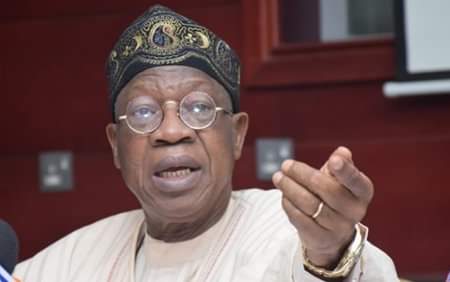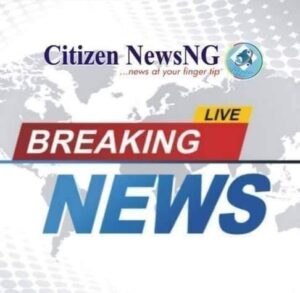
The Federal Government says funds donated by the private sector towards fighting Coronavirus are meant for development of healthcare infrastructure and cannot be used to provide palliatives during lockdown.
The Minister of Information and Culture, Alhaji Lai Mohammed, gave the explanation on Tuesday, when he featured on a Radio Nigeria programme, “Politics Nationwide”, monitored by the News Agency of Nigeria (NAN).
Mohammed was responding to comments from Nigerians requesting that part of the billions of naira being donated by public-spirited individuals and private institutions should be shared to the people to cushion the effect of the extended lockdown.
The minister said that the Presidential Task Force for the Control of Coronavirus was neither with the money nor in control of it, and could not share a penny from the fund to anyone.
“The private sector donors are not giving any cash to the federal government and they have made this clear to the people.
“They said they will support the fight against the pandemic by asking government where they want healthcare infrastructure to be provided.
“What government has done is to request them to build a 30-bed isolation ward and a 10-bed Intensive Care Unit in each state in the country.
“In addition, the federal government has given them a list of equipment and commodities that will also be needed
“Therefore, the issue of using their donations to provide palliative cannot arise,” he said.
Mohammed further said that in addressing the issue of palliative, every country adopted peculiar strategy that was workable and acceptable.
He said that Nigeria was leading and remains the best in the whole of Africa in the area of provision of palliative to citizens as the world battles the scourge.
The minister said that the federal government had taken a lot of measures to cushion the effects of Covid-19 on Nigerians, including food distribution, cash transfers and loans repayment waivers.
He recalled that on March 18, government reduced the price of petrol from N145 per litre to N125 per litre, with that reduction going further down to N123.50 per litre.
The minister added that President Muhammadu Buhari had directed a three-month repayment moratorium for all TraderMoni, MarketMoni and FarmerMoni loans as well as Federal Government-funded loans issued by the Bank of Industry, Bank of Agriculture and the Nigeria Export Import Bank.
He said that interest rates for intervention fund had been slashed from nine to five per cent, while the CBN put aside N50 billion fund to help SMEs.
Mohammed said that to cushion effect of the lockdown, satellite towns around Lagos and Abuja were being given relief materials while the vulnerable and those in IDP camps are being taken care of.
He said that besides the two months payment of Conditional Cash Transfer monthly stipend, the President ordered that the social register be expanded from 2.6 million households to 3.6 million households in the next two weeks.
The minister said that the President had set up a ministerial committee to ensure the economy adapted to the new reality and another body to minimise the impact of the pandemic on the 2020 farming season.
NAN reports that apart from the 30 million dollar (about ₦11.4 billion) recently donated by the NNPC and 33 of its partners, the Central Bank of Nigeria (CBN), had said that monetary contributions by the Private Sector Coalition Against COVID-19 (CACOVID), has totaled up to about N15 billion.
According to its spokesperson, Isaac Okorafor, the fund, domiciled in an account set up under CACOVID, has so far received donations from 37 donors including individuals, banks and other corporate organisations.
Details of the contributions showed that the CBN and Aliko Dangote Foundation contributed N2 billion each.
Abdul Samad Rabiu (BUA Sugar Refinery), Segun Agbaje (GTB), Tony Elumelu (UBA), Oba Otudeko (First Bank), Jim Ovia (Zenith Bank), Herbert Wigwe (Access Bank) and Femi Otedola of Amperion Power Distribution donated N1 billion each to the relief fund.













